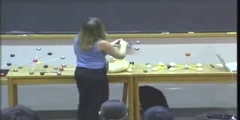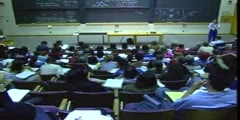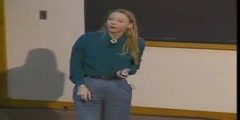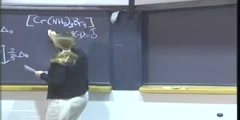Lec 21 - Weber's Theory of Class
"Lec 21 - Weber's Theory of Class" Foundations of Modern Social Thought (SOCY 151) Along with the macro-level shift from traditional forms of authority to legal-rational authority, Weber's theory of class identifies a macro-level shift from status to class determining life chances. In feudal times, under traditional forms of authority, monarchs or others in power conferred high status upon individuals and material wealth followed; first a man would be named a nobleman, and then he would get his estate. In the modern capitalist era, individuals obtain their monetary or material wealth and their class position vis-à-vis the market determines their life chances. Weber, in contrast to Marx, argues that class is a modern phenomenon. However, this does not mean that our modern and contemporary world does not have versions of status. Like remnants of traditional and charismatic authority co-mingled with legal-rational authority in the state and other institutions, status still determines life chances to a certain extent. The influence of status is somewhat subsumed under Weber's category of social class. 00:00 - Chapter 1. Remarks for Final Exam 04:06 - Chapter 2. Introduction to Weber's Theory on Class 19:57 - Chapter 3. Definition of Class 29:59 - Chapter 4. Definition of Status Group 38:19 - Chapter 5. Class and Status Compared; Types of Classes Complete course materials are available at the Open Yale Courses website: http://open.yale.edu/courses This course was recorded in Fall 2009.
Video is embedded from external source so embedding is not available.
Video is embedded from external source so download is not available.
Channels: Sociology
Tags: Lec 21 - Weber's Theory of Class
Uploaded by: yalemodsocialth ( Send Message ) on 14-09-2012.
Duration: 44m 38s
Here is the next lecture for this course
Lec 13 - Marx's Theory of Class and Explo ...
51:13 | 3204 viewsLec 17 - Conceptual Foundations of Weber' ...
52:46 | 2766 viewsChemical Science - The Shapes of Molecule ...
43:18 | 31974 viewsLec 10 - Marx's Theory of Historical Mate ...
50:24 | 3150 viewsLec 11 - Marx's Theory of Historical Mate ...
48:53 | 3364 viewsLec 12 - Marx's Theory of History
51:30 | 3382 viewsLec 18 - Weber on Traditional Authority
50:18 | 2640 viewsLec 19 - Weber on Charismatic Authority
49:26 | 2760 viewsLec 20 - Weber on Legal-Rational Authority
47:54 | 2880 viewsLec 3 - Measurements vs. Bits: Compressed ...
01:16:32 | 2702 viewsChemical Science - Molecular Orbital Theo ...
50:51 | 32537 viewsThe valence bond theory
49:54 | 23969 viewsChemical Science - Transition Metals: Cry ...
40:23 | 13625 viewsAn unified theory of everything
02:11 | 8124 viewsBinding Process of MHC Class I Molecules
01:36 | 8059 viewsNo content is added to this lecture.
This video is a part of a lecture series from of Yale
Lecture list for this course
Lec 2 -Hobbes: Authority, Human Rights and Social Order
Lec 3 -Locke: Equality, Freedom, Property and the Right to Dissent
Lec 4 -The Division of Powers- Montesquieu
Lec 5 - Rousseau: Popular Sovereignty and General Will
Lec 6 - Rousseau on State of Nature and Education
Lec 7 - Utilitarianism and Liberty, John Stuart Mill
Lec 8 - Smith: The Invisible Hand
Lec 9 - Marx's Theory of Alienation
Lec 10 - Marx's Theory of Historical Materialism (1)
Lec 11 - Marx's Theory of Historical Materialism (cont.)
Lec 12 - Marx's Theory of History
Lec 13 - Marx's Theory of Class and Exploitation
Lec 14 - Nietzsche on Power, Knowledge and Morality
Lec 15 - Freud on Sexuality and Civilization
Lec 16 - Weber on Protestantism and Capitalism
Lec 17 - Conceptual Foundations of Weber's Theory of Domination
Lec 18 - Weber on Traditional Authority
Lec 19 - Weber on Charismatic Authority
Lec 20 - Weber on Legal-Rational Authority
Lec 22 - Durkheim and Types of Social Solidarity
















